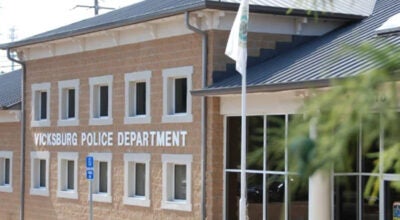Picking populations
Published 12:03 pm Monday, May 7, 2018
Though it probably isn’t ever an aim, there is a dynamic in local governance that always seems to pick or favor, choose or select, some populations over others. Where one neighborhood is demonstrably wealthier and pays more taxes for the things it receives, there are other neighborhoods also entitled, though not equally enabled, to receive similar benefits.
The most obvious current example is the location of expansive, new recreational facilities on the south side of the city while the north side lacks even sidewalks to access the local Y. The highway is the reason, and mobility rather than access is the obvious priority — and the population served. That’s not going to change.
Efforts to address the infrastructural needs in Kings seem always to be balanced against what the larger society needs — or will tolerate.
Even government-aided efforts like saving Beulah Cemetery tend to be seen as wasteful and foolish and of no use to the larger community; in fact, a drain on the community’s resources. It’s that attitude that hurts.
Children who live on the north side of Vicksburg cannot walk to the planned playgrounds. Nor is it likely they will pay daily fares for a commute down there when it isn’t even clear that buses will go there.
Thus, appropriations hide choices.
Consider this: the most displayed and favored history of Vicksburg is that of the Civil War South. In houses and artifacts; in celebrations and restorations, that one way of life is perpetuated. But decidedly more worthy and in need of display is the 1400 block of Main Street, which could be the revival of a riveting history.
On the north side of that street are stately homes once occupied by a black middle class. The McAllisters lived there; the Ewings lived there; Mr. Dillon and others lived there. But just across the street from them, on the south side of Main, is a row of shotgun houses where black people lived who were not middle-class. And they were all neighbors and friends.
Today, black people, who were that well-off, would locate in other neighborhoods. But back in the day, that would not have happened because no matter how educated or well-off you were, you weren’t allowed anywhere else. You were black in a black neighborhood, period. But out of that enforced segregation came thriving black neighborhoods and great mutual respect, as much for Mr. So and So who “worked at the bank”, cleaning up, as for the lawyer or college professor living across the street.
That kind of history should be revived and celebrated. But other “populations” and histories are preferred.
Our hidden choices are most readily known in the distribution of our resources: we want this, and we don’t want that.
But it’s not just a matter of history either. Those shotgun houses now need fixing up. People are living in them. Regulations requiring their upkeep should be code-enforced. For “where your heart is, there also is your treasure.”
Yolande Robbins is a community correspondent for The Vicksburg Post. You may email her at yolanderobbins@fastmail.com





